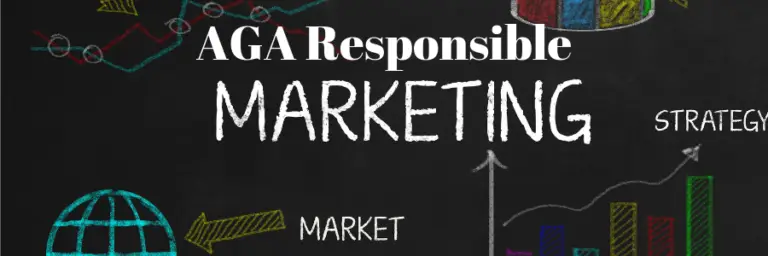Sportradar’s Mark Balch Talks eSports in the Time of Coronavirus

The coronavirus outbreak has impacted nearly every social interaction across the world, shuttering nearly every professional sports league and crippling the fledgling U.S. sports betting market less than two years after it was allowed to grow nationwide.
Even eSports competitions, which don’t inherently require in-person interactions to be played at the highest levels, have seen many top events canceled.
But as the more traditional sports wait for the pandemic to subside with few resolutions beyond patience, some eSports leagues are continuing to operate. In the massive sporting void left by the virus, eSports officials see an opening for something bigger.
Mark Balch, Head of Product & Partnerships at Bayes Esports Solutions, a joint venture of Sportradar and Bayes Holding (formerly DOJO Madness), believes the current dearth of sports betting options could be a boon for his industry as all sports fans – and bettors- scramble to find a new venture for wagering. He spoke with BettingUSA about how the coronavirus could change American eSports betting despite the initial reticence from many elected officials and regulators, as well as the biggest opportunities and challenges ahead.
One of the few types of competition that don’t necessarily require in-person contact, eSports has the potential to be among a handful of regulated activities still offered at sportsbooks during the near-global shutdowns due to COVID-19. How has the industry adapted to the current situation, and how can eSports use the structure of its competitions to its advantage?
The current crisis is hurting every industry, including eSports and gambling on eSports. But at the same time, eSports is very resilient. We began as online gaming against each other and this is where most people who were in the industry came from, playing the games at home growing up and playing against each other that way. The pros and the people like me got into it that way.
So we’re used to this environment. We are still able to produce content. We’re one of the few industries in the world capable of doing that right now. It’s really quite beneficial to us.
All the tech and the second-tier components and grassroots aspects of the industry are on the internet. Many still play in online tournaments, and even top pros stream on platforms like Twitch. In a way, it’s been business as usual for eSports- though we now have a huge amount of attention on us.
We have taken a hit a little bit, but the online interest in eSports has massively exploded. Anyone who was thinking about eSports, but wasn’t really sure, now is desperate for the content.
With those opportunities come challenges brought on by the virus. What have been the biggest obstacles and concerns for eSports and eSports betting?
At the same time we have these online events, we have in-person industry events in Los Angeles in New York and other places with stages and huge crowds, and these can’t happen. The more prestigious, top end of eSports is on hold right now, and that has a chain reaction effect on other events.
Then there are also technical issues and glitches, delays and streams and so forth for online play. Every single game, like every single sport, has a totally different set of rules and different technical aspects involved. The difficulty now is latency because someone in China cannot possibly play someone in the U.S. or Europe because the time it takes the information to go across these regions is far too big. International events don’t really have any competitions now. It’s all just regional competitions. That’s the biggest impact.
Esports, in the states that allow wagering on them, are now pretty much the only offering at many American sportsbooks. Do you think they could replace the volume of more traditional sports?
I didn’t really think that was going to happen. We’re not going to get traditional sports fans to bet on eSports the same way they would on their own team, because of that emotional connection.
However, I think there can be more eSports fans because there are more people sitting at home doing nothing. That means there will be more people watching every single stream, and way more people watching every single stream that want to bet on it. That has had a positive impact on the bottom line.
Though Washington specifically included eSports in its sports betting bill, and states such as New Jersey, and more recently, Nevada have allowed eSports wagering in part due to the virus, it remains banned from sportsbooks in many of the states that allow wagering on more traditional sports. What do you think of this state-by-state approach and how do you think the coronavirus could impact the future of American eSports betting?
It’s obviously something that I’m not sure anyone benefits from. There’s complexity with every single state having its own regulations and it’s only going to get more complicated as time goes on.
But now, the states that suffer the worst are going to want eSports. Esports, or any other niche sport in the U.S. like cricket, wasn’t taken seriously early because it wasn’t going to make as much of a difference, like a (league) like the NFL or NBA.
This means there’s very little pressure on regulations. I think there was a little misinformation, there were fears for underage players and there wasn’t a lot of desire to spend the lobbying money on behalf of eSports. Very suddenly, this has changed, because there’s absolutely nothing else on.
Maybe this is the time to consider regulations. Things like eSports, and other sports as well, are examples that if something like this outbreak happens, people should still have things to bet on. It can take many months or years to get regulations changed. In the meantime, any business that can’t bet on eSports simply has to go without.
To your point, there’s still a stigma on not just gambling in America, but even video games themselves. That’s not to mention a relative misunderstanding for many on what eSports actually are. Could, at the very least, the outbreak help elected officials, and the general American public, better appreciate the nature of these games?
Definitely. Even if you go back 20 years ago, there were thoughts of video games brainwashing people. There’s definite resistance to these kinds of sports. I understand there’s a difference between eSports and traditional sports. One does not replace another. Esports exist as part of a subculture of video games.
Still, I hope this is a showcase for people who are stuck at home in most parts of the world. Netflix only goes so far. This is a chance for people to pick up video games, to maybe do so competitively and to start following eSports. Even in an economic downturn, this could be, in a weird way, beneficial to eSports.
Ryan Butler is a legislation analyst for BettingUSA.com specializing in US sports betting legislation. Ryan breaks down the latest bills in each state to ensure our readers are up-to-date on where their states sit on sports betting. You’ll often find Ryan listening to committee hearings or preparing for the latest legislation based conference.







